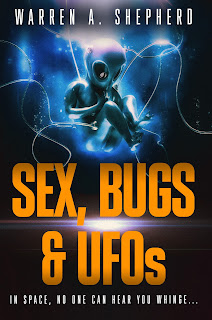Morrissey
was seven when he first suspected that the world didn’t fit him quite right.
Two sizes too big or two sizes too small, he couldn’t be sure. All he knew was
that planet Earth pinched him in all the wrong places. Discovering this
uncomfortable truth wasn’t like when you learn there is no Santa Claus, or that
In The Beginning, Man created God and not the other way around. No. The truth
had hit him very much like the tight, smelly fist of a schoolyard bully called
Norman Riley.
The
fight, if you could call it that, didn’t last long; a three against one attack
rarely does. Why do thugs always travel in threes? But Morrissey managed to get
off one good shot that seemed to make his point. After that, he spent most of
the time blocking Norman’s punches with his nose while his henchmen pinned
Morrisey’s arms.
Later
that night, he sat at the dining room table, silently pushing peas around his
plate while his mum sat patiently opposite. She was too good at mothering to
force him to talk before he was ready, but he knew she couldn’t go on
pretending he didn’t have an entire tissue box bunged up his nose to stop the
bleeding.
“Do
you want to talk about it?” she said softly.
Morrissey
shrugged the question away without meeting her gaze. Finally, he answered.
“Norman Riley is a wanker.”
His
mum suppressed a grin. “Davey! You can’t call him that.”
“Well
he is. He’s a bully and a wanker.”
“But
he’s never picked on you before.” A twitch of worry flickered across her face.
“He hasn’t, has he?”
Being
the new kid in town made Morrissey easy prey in Norman’s book, having only
recently moved to London from a small town south of Sheffield. Up until now,
he’d been able to avoid the brunt of Norman’s torments; there were plenty of
other victims further down the food chain. “No. I can usually stay out of his
way.”
“But
not today?”
“Not
today.” Today, Norman had come at him with a full-on purpose. Kids can be
horrible to one another, and Norman excelled at horrible. “He said…he said
things.”
His
mum tried to defuse the situation with one of her tender smiles. “People say
things all the time, Davey. Doesn’t mean we have to start fights over them.”
Morrissey
glared. “Does it look like I started the fight?”
“No,
but — “
“It
was about you.” The words came rushing out, unbidden. “He said things about
you.”
She
stiffened. “What…sort of things?”
Morrissey
replayed the scene over in his head, complete with Norman’s malicious glee at
having spread the poison. “He said you and his mum got into an argument at the
Co-Op. Didn’t you just say that we can’t go around starting fights?” His mum
looked away, sheepishly. “He said the fight was about whether or not UFOs are
real. How is that even worth fighting about? He said you told her you’d seen
one, that you’d even seen an alien.” His mum’s fascination with
extraterrestrial phenomena was no secret to him; they’d often make a game of it
as they looked up at the stars. Sometimes, when they were out in public, they
would play a game of spot the alien, playfully pointing out likely candidates
who could be extraterrestrials amongst the passersby, making up fantastic
planets complete with complex races and civilisations. But that was a game.
Their game. Norman had turned it into something vile and twisted. “He said you
were a crackpot. A freak. A mental case.” Morrissey turned his eyes up from his
plate, fighting the well of tears. “Is it true? Did you see one — an alien?”
His words felt sour and accusatory on the way out.
His
mum blanched. Morrissey could tell she was struggling for just the right
answer. “That’s silly, Luv. Why would I say that?”
“Why
would Norman say that? He’s not smart enough to make something like that up. Is
it true?”
She
took too long to answer. “I’m so sorry, Luv, I really am. It’s something I
don’t like to talk about.”
Warren A. Shepherd was seven when he first realized the world didn’t fit him quite right. Two sizes too big or two sizes too small, he couldn’t be sure. But having been transported from the streets of London, England to the streets of Toronto, Canada at such a young age left him with a profound sense of alienation — a boy with one foot in each world yet belonging in neither. The experience, however, did sharpen his sense of self-awareness and made him a keen observer of the human (and not-so-human) condition.
When he sees what humankind is capable of, both the good and the bad, he imagines how we would cope amongst the stars and is driven to tell stories of strange new worlds to try to explain the one that he often cannot.
After all, it takes an alien to know an alien…
Connect with the Author:






